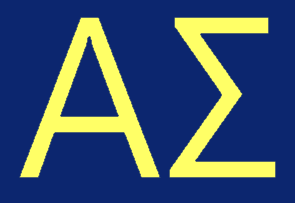£21.45
A student showed me this puzzle and I thought it was quite neat. I have £21.45 in coins. There are four denominations of coin, one of which is £1, and each denomination has the same number of coins. What coins do I have? I'm going to go straight into analysis since this was on Radio 4 recently, so look away now if you want to try it yourself.
I want to talk about this problem more generally and so I'm going to get rid of the requirement that one of the coins is £1, which makes the problem non unique. Since we want to divide the money up into the same number of each coin, that means we could divide the total 2145 pence by some integer to find the base amount we need to make with four distinct coins. 2145=3*5*11*13 so we have lots of choices for what to divide by. Below I have a table of the results of dividing by 3, 2, 1 and 0 of its prime factors:
These are the numbers that we need to make with four distinct coins. Four distinct coins have a lot of combinations (8C4=70, because there are 8 distinct British coins excluding ceremonial £5 coins, Maundy Money and the like. Currency has a lot of edge cases) and here is a table of the first 15:
However, we can eliminate a lot of our potential answers quite quickly by just trying each one. The entity of the first column can be eliminated because we can't make anything that low. Similarly 15 goes. The largest amount we can make is 20+50+100+200=370 so we can eliminate everything up from there. This leaves:
There is no way to get a 9 at the end, so 39 is out. Most of the rest have 5 at the end which we can only do if we have a 5 but no 1s or 2s. To fill up the other 3 coins with a choice of 10, 20, 50, 100, 200 doesn't leave many options. It doesn't take long to convince yourself that 33=1+2+10+20 and 165=5+10+50+100 are the only ones that work.
So the two solutions are 65 lots of 1p, 2p, 10p and 20p, or 13 lots of 5p, 10p, 50p and £1, but only the latter works when you add in the extra restriction.









